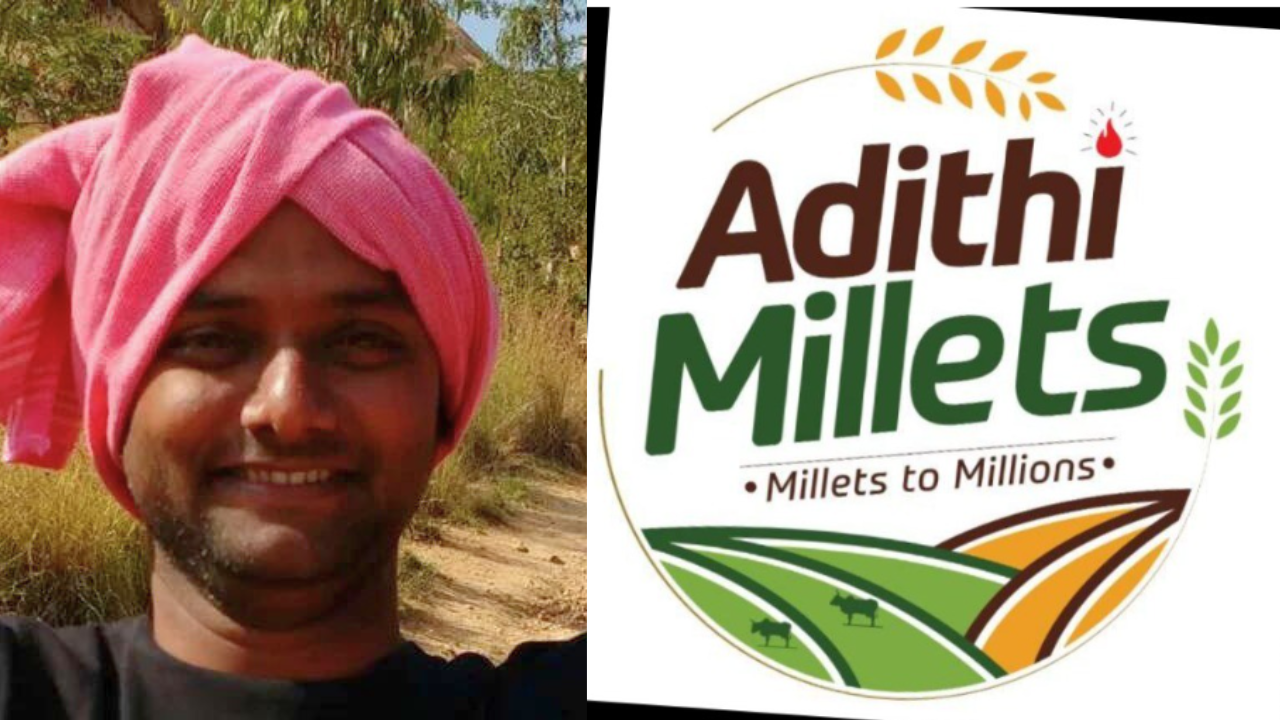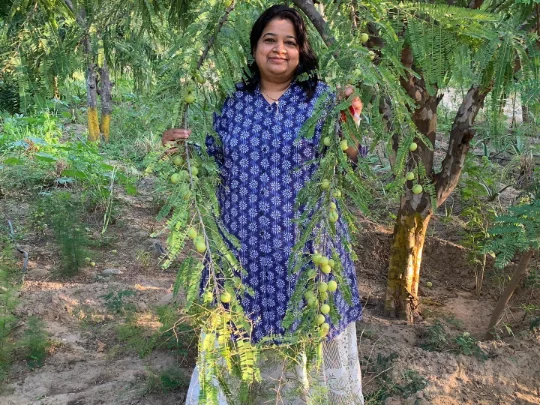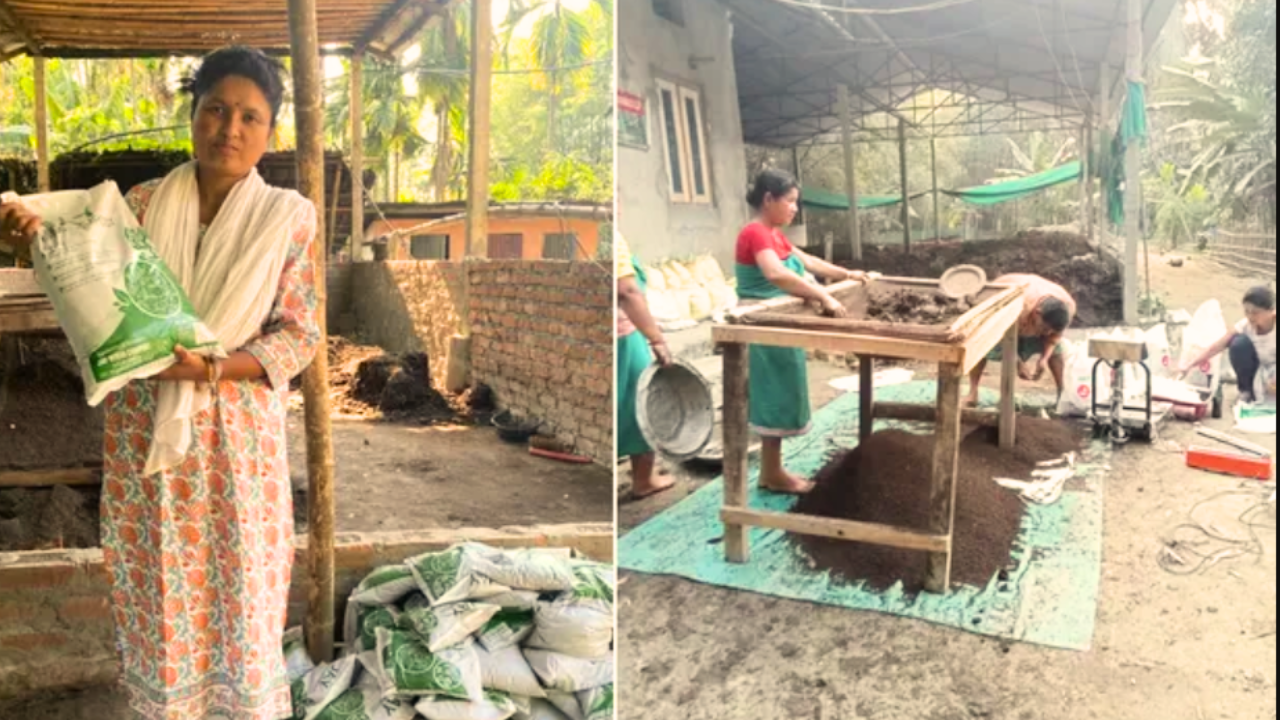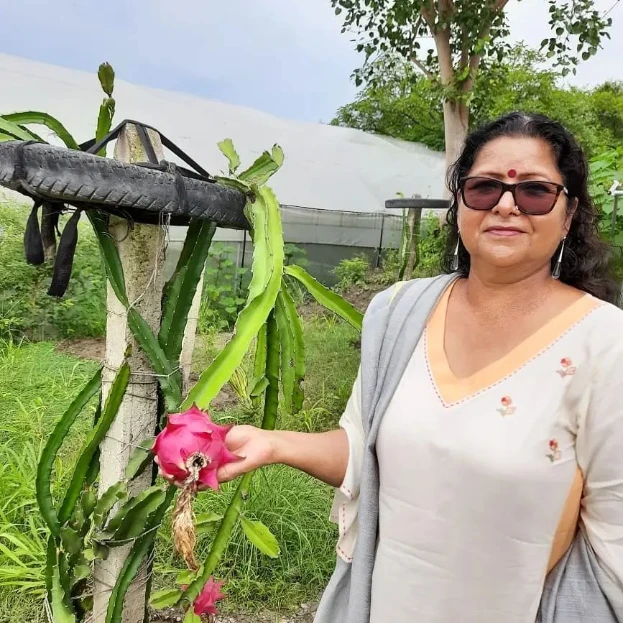“People told me I was crazy,” Rakesh Chowdhary (40) recalls, thinking back to the reactions he received from friends and family when he shared his desire to switch from traditional farming to medicinal farming. Rakesh grew up in Rajpura village in Rajasthan, where farming was the family’s way of life. Despite pursuing a BSc in Jaipur, he remained committed to continuing the family legacy.
“People often expect that if you leave home and get an education, you’ll find a job instead of sticking with farming. This seems to be a common issue among young people. They’d rather opt for a $100 job than pursue agriculture. But for me, it was crystal clear that my future lay in farming,” Rakesh explains.
Presently, Rakesh generates an annual income of $1.2 million through his business, Vinayak Herbal. His success story is based on cultivating herbal and medicinal plants. He manages farms across the country in various states like Uttar Pradesh, Haryana, Himachal Pradesh, Punjab, and Gujarat. Rakesh collaborates with more than 50,000 farmers, working collectively to promote organic medicinal farming.
Obstacles to Success
Describing what motivated him to start growing medicinal plants, he shares, “Back in 2003, I was assisting my father on our farms and exploring different types of farming. During this time, I came across a program by the State Medicinal Plant Board that promoted contract-based farming.”
He continues by elaborating, “Within this initiative, the government provided rewards to farmers who participated in the cultivation of medicinal plants through contract farming. Contract farming involves an agreement between farmers and companies that process or market agricultural products. But at that point, nobody in my area, including my family, was willing to step away from traditional farming and try something new.”
Rakesh felt that people were overlooking the potential of this opportunity. He recalls thinking,, “Why not give it a try?”. The experts from the medicinal plant department directed him towards growing medicinal plants that could bring in good profits.”
While Rakesh’s success story might seem like luck, the journey to achieve it was full of challenges. Initially, he faced a lack of resources and funds to invest in his venture.
“As a small-scale farmer like me, there’s no access to loans since we don’t have valuable assets to use as collateral. To gather the necessary funds for my first crop, my wife took a loan using her jewelry as security. We also sold some of our cattle,” he explains.
In 2004, he utilized a part of his family’s land to plant his first crop, which included mulethi (liquorice) and flame lily.
“Unfortunately, it didn’t go well. Rajasthan’s climate is arid and hot in the summers, and extremely cold in the winter. I didn’t thoroughly consider the climate and plant requirements. I faced substantial financial losses and was disheartened,” he recalls.
Despite the setbacks, Rakesh never contemplated giving up. For his second crop, he took a risk by putting his only tractor on the line and borrowing money from a private individual.
“Even though people’s criticisms seemed to be coming true, I never thought of quitting. I knew there was potential in this endeavor. The second time around, I planted aloe vera, and it turned out to be a success. All I needed to do was research more and understand the local soil conditions for a successful harvest,” he emphasizes.
Aside from the challenges he faced, the lack of support from his family weighed heavily on him.
“I was young and all I wanted was faith and backing. I was a struggling farmer with debts and a family to take care of. My biggest motivation came from the adversity I was experiencing. I felt compelled to make it work; it was as if I had no other option. I created a checklist before planting each crop — assessing the local climate, choosing high-quality crops, and gauging market demand,” he explains.
As of 2005, Rakesh had mastered the science of farming. “I had developed a thorough understanding of the soil, the crops, and the crucial climate conditions”. The next step was to find customers, which was the third item on my checklist. In 2006, I secured my first customer for aloe vera, and they purchased it for Rs 1.5 per kg.”
Creating a profitable business
“I believed in my work, but facing numerous challenges made me lose heart. When I received my first order, it felt like a glimmer of hope. Having a deep understanding of farming, I realized it was the perfect moment to connect with farmers all across the country,” he explains.
He continues, expressing, “Reaching out to farmers marked a major milestone for me because I hadn’t explored beyond Rajasthan earlier, and it did bring about a touch of anxiety.”. It was an inner battle I faced, but I kept motivating myself. I approached farmers, discussed the advantages of medicinal farming, and formed partnerships with them. Today, I have farms in various states across the country, each cultivating crops suitable for the local climate and soil.”
The journey took him nearly ten years. In 2017, he launched his company, Vinayak Herbal, which enabled him to establish connections with thousands of farmers nationwide.
“Creating a network was a tough challenge. I wasn’t known back then, but things have changed now. We cultivate over 120 types of medicinal plants and supply them to pharmaceutical firms and distributors across the nation,” he adds.
These plants include aloe vera, ashwagandha, chamomile, stevia, chia, akarkara, fenugreek, and fennel.
Rakesh strongly believes that more young individuals should consider taking up farming.
“It’s evident that numerous youngsters from farming families are shifting away from the field of agriculture. Parents put in a lot of effort, sending their children to colleges and universities with the hope that they’ll find jobs and won’t have to return to farming. Sadly, only about 30 percent of them actually pursue farming. Usually, it’s due to a lack of job opportunities or education,” he points out.
“The core issue stems from the lack of organization within the sector. Despite India’s historical connection with agriculture, farmers have faced recurring losses. With proper planning, market focus, and fair pricing, this situation can be transformed. It’s becoming increasingly urgent. Otherwise, there might be farms, but no farmers to tend to them.”
Rakesh has taken it upon himself to inspire more young people to join the agriculture sector by showcasing its profitability. “With the right people, knowledge, and a determination to overcome challenges, anyone can become a successful farmer,” he concludes.







